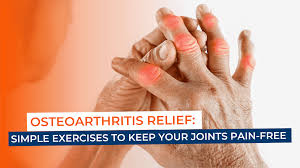Aging brings natural changes to the body, often affecting mobility and stability. These changes can impact daily life, from maintaining balance to completing routine activities. Orthotics, custom-made or specialized shoe inserts, play a significant role in supporting the body and enhancing mobility for older adults. While they are frequently associated with foot and ankle health, orthotics provide benefits for improving lower body alignment, managing pain, and promoting overall comfort.
Supporting Joint Health
Over time, wear and tear on joints can reduce flexibility and contribute to discomfort during daily activities. Misalignment in the lower body places undue stress on joints like the knees, hips, and back. Orthotics offer relief by providing proper support and cushioning. These devices adjust alignment and help distribute body weight evenly, alleviating stress in overworked areas. With consistent use, individuals can experience improvements in walking efficiency and reduced strain on the joints.
Orthotics assist in promoting joint stability by addressing underlying biomechanical issues, such as flat feet or overpronation. By stabilizing foot posture, they relieve unnecessary tension and allow the body to function with better mechanics. Individuals who have osteoarthritis in the knees and lower body often find these devices helpful for managing discomfort.
Enhancing Balance and Mobility
The balance naturally declines with age due to changes in muscle strength and sensory perception. Reduced balance significantly increases the risk of falls, a common concern among older adults. Orthotics improve stability by offering better foot support on uneven surfaces. They help make sure feet remain stable during movement, encouraging confidence in every step. Orthotics also promote more natural walking patterns by reducing compensatory movements caused by discomfort. Achieving optimal alignment in the lower body enhances overall gait and leads to improved mobility. For those experiencing discomfort associated with standing or walking, orthotics provide the needed support to perform daily activities with less difficulty.
Reducing Foot and Heel Pain
Foot and heel pain often accompany aging, making it uncomfortable to perform even basic tasks. Conditions such as plantar fasciitis, bunions, and Achilles tendonitis are commonly addressed through orthotics. These devices employ specialized designs to cushion sensitive areas and reduce pressure on painful regions.
Orthotics are beneficial for redistributing pressure in the feet, ensuring specific areas do not bear excess weight. Conditions like diabetic neuropathy, where nerve damage creates pressure points, greatly benefit from custom orthotics that relieve localized discomfort. Addressing these issues can significantly improve the quality of life for older adults by allowing them to maintain an active lifestyle.
Promoting Comfort with Everyday Use
A common misconception about orthotics is that they are only necessary for medical conditions. However, they benefit nearly anyone seeking improved comfort and support as they age. Many older adults experience changes in the shape of their feet due to loss of elasticity in supportive tissues. Orthotics accommodate these changes by providing a custom fit, ensuring a more comfortable walking experience. Using orthotics regularly also helps reduce fatigue caused by prolonged standing or walking. The improved weight distribution they offer lessens unnecessary stress on the lower body. Older adults who enjoy walking, gardening, or other physical activities can use orthotics to continue pursuing their hobbies with fewer aches and pains.
Considering Orthotics for Aging Adults
The process of obtaining orthotics begins with a professional assessment to identify individual needs. Over-the-counter inserts may provide relief for mild conditions, but custom orthotics designed for specific foot shapes and challenges yield the most significant benefits. A structured evaluation determines the correct materials, fit, and degree of support required for each individual.
Orthotics offer more than immediate comfort; they support long-term mobility and independence. Whether addressing discomfort, preventing falls, or enhancing daily movements, these devices play a fundamental role in improving the lives of aging adults.
- Zirconia Cap Price: Estimated Cost & Its Long-Term Benefits
- FREHF – The Revolutionary Future Of Human-Centered Technology!
- Adsy.Pw/Hb3 – Boost Your SEO And Drive More Traffic!
- Fitness Based Vacations By Timeshealthmage.com!
- TimesHealthMag Tips For Improving Sleep Quality – Expert Advice For Better Rest!


Leave a Reply